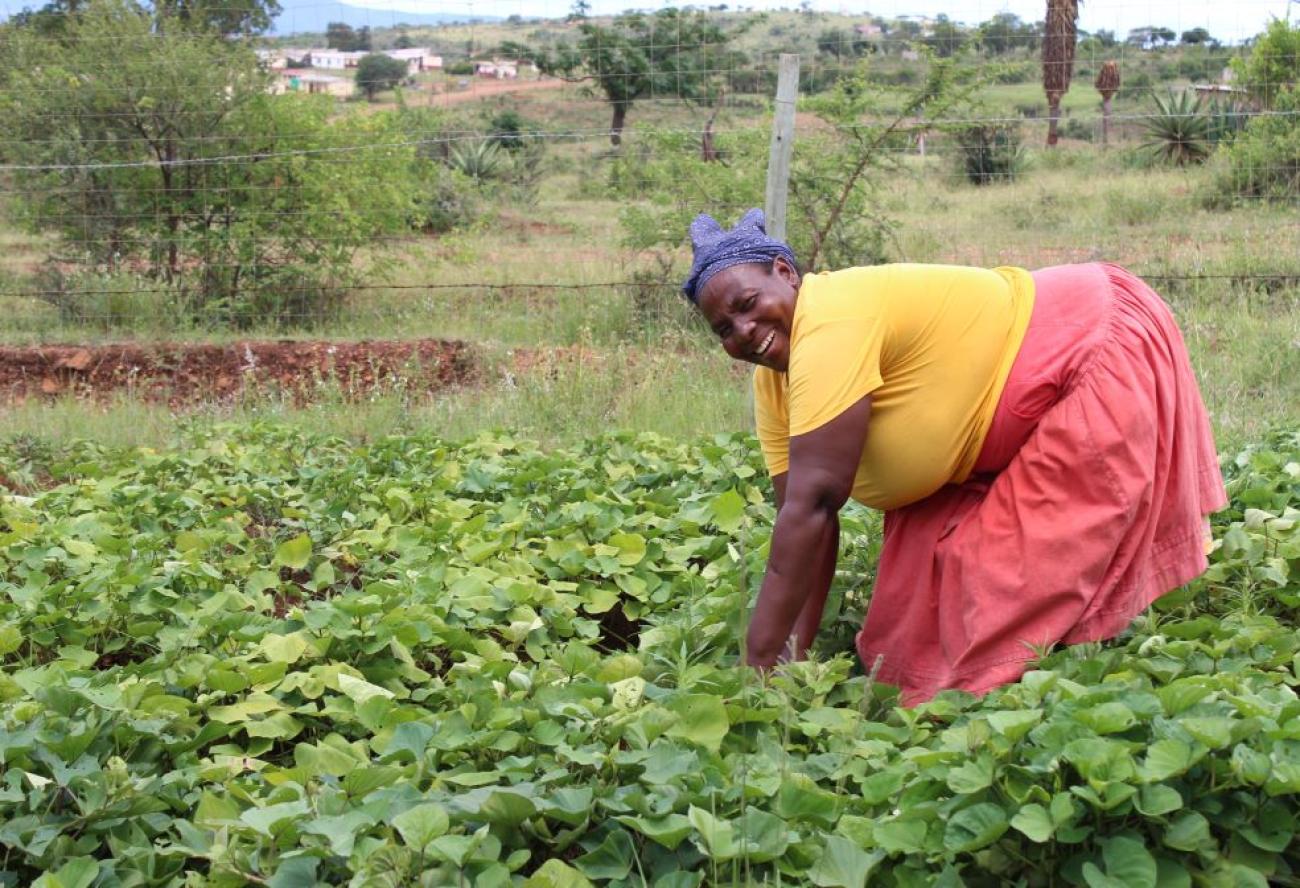Zero Hunger: Working together towards achieving a world without hunger by 2030

Sustainable Development Goal 2 – Zero Hunger – is the goal of the month for October.
In 2015, the global community adopted 17 Global Goals for Sustainable Development to improve people’s lives and provide a better world for all by 2030. These goals have the power to end poverty, fight inequality and address the urgency of climate change. Guided by the goals, it is now up to all of us, governments, businesses, civil society and the general public to work together to build a better future for everyone. Sustainable Development Goal 2 – Zero Hunger – is the goal of the month of October. It pledges to end hunger, achieve food security, improve nutrition and promote sustainable agriculture.
Every day, too many men and women across the globe struggle to feed their children a nutritious meal. In a world where we produce enough food to feed everyone, 821 million people – one in nine – still go to bed on an empty stomach each night. Even more – one in three – suffer from some form of malnutrition. An additional 2 billion people are expected to be undernourished by 2050.
For the third year in a row, world hunger has not gone down in 2018 and obesity is still growing. This underscores the immense challenge of achieving Zero Hunger by 2030. Eradicating hunger and malnutrition is one of the great challenges of our time. Not only do the consequences of not enough – or the wrong – food cause suffering and poor health, they also slow progress in many other areas of development like education and employment.
Given these challenges, increased political will and targeted actions at the global, continental, regional, national and community level are needed to help the most vulnerable. The Government of Eswatini has adopted the SDGs. Every day, the Government and development partners work to bring us closer to a zero hunger Eswatini. While food assistance is provided to those in urgent need, complementary programmes address the root causes of hunger, thereby building the resilience of communities to create lasting solutions.
In Eswatini, almost half the population is under the age of 20. One in four children has lost one or both parents. ‘Orphans and vulnerable children’ make out 58 percent of children under 17 and constitute the most vulnerable section of the population. These children face an increased risk to malnutrition, which affects 26 percent of children under the age of five.
Social protection systems that protect the most vulnerable from shocks and stresses throughout their lives and aim to lift people out of poverty in the long run are critical. They may take many forms. They usually address multiple, inter-related issues, including poverty and food security, thus facilitating the achievement of several Sustainable Development Goals (SDGs), including SDG2 on Zero Hunger.
One example on how the Government of Eswatini provides social protection to children is through national school meals. Providing school meals has proven to be one of the most impactful social protection measures globally.
Having food at school every day can mean not only better nutrition and health, but also increase access to and achievement in education. It is also a strong incentive to consistently send children to school. In times of drought and increased food insecurity, children will still have at least one warm meal per day, and parents continue having the motivation to send children to school.
As the UN, we support all efforts aimed at building social protection systems that strengthen food security in the country. In collaboration with the Government of Eswatini and with support from donors, the UN World Food Programme (WFP) provides food to over 55,000 orphans and vulnerable children of pre-primary age at Neighbourhood Care Points (NCPs) across the country.
NCPs provide a safe place for boys and girls, where volunteer caregivers from the community cook a warm meal for the children every day and provide extra complimentary services such as early childhood education and links to basic health care. 1700 of these day care centres were reached in 2018.
Smallholder agriculture remains the backbone of rural livelihoods in Eswatini, with over 70 percent of the population (60 percent of whom are women) relying on subsistence farming. Investments in agriculture are therefore crucial to increase the capacity for agricultural productivity while sustainable food production systems are necessary to help alleviate the perils of hunger. As another example: since the early 1970s, the Food and Agriculture Organisation (FAO) has assisted the Government of Eswatini in formulating and implementing food security and nutrition policies, including risk reduction and management strategies, coupled with activities to increase agricultural productivity.
This year, WFP and FAO together with the Government started a new initiative to strengthen rural livelihoods through assistance to smallholder farmers to access markets and while supporting the Government in developing technical expertise for increased local purchase of food commodities from smallholder farmers. Improved incomes of rural populations combined with nutrition interventions in communities will increase food security levels in rural households and will represent a major step towards achieving zero hunger in Eswatini.
Working towards zero hunger, as well as achieving other SDGs, which are integrated and interlinked, is a joint effort. If we want to see a world, and the Kingdom of Eswatini in particular, free of hunger by 2030, together - the Government of Eswatini, Emaswati people, the United Nations, development partners, the private sector, civil society organizations, academia, media and development partners – let’s continue to collaborate to invest, innovate and create lasting solutions through partnerships, thereby also advancing SDG 17.







